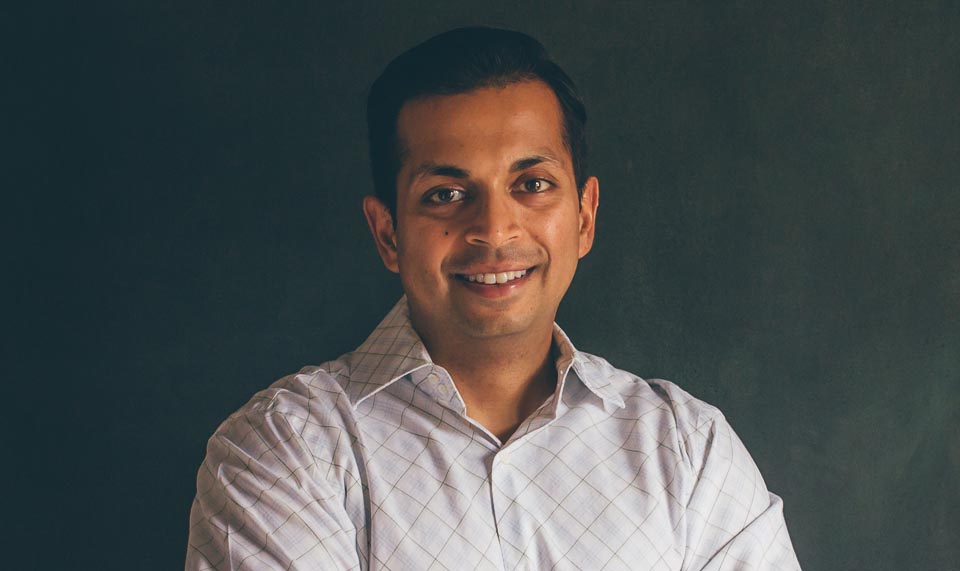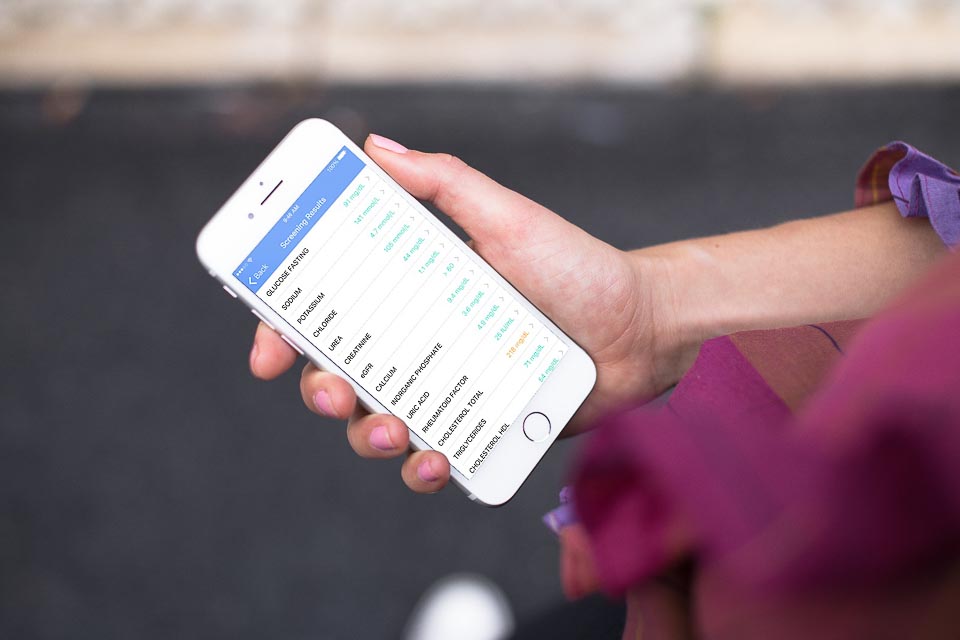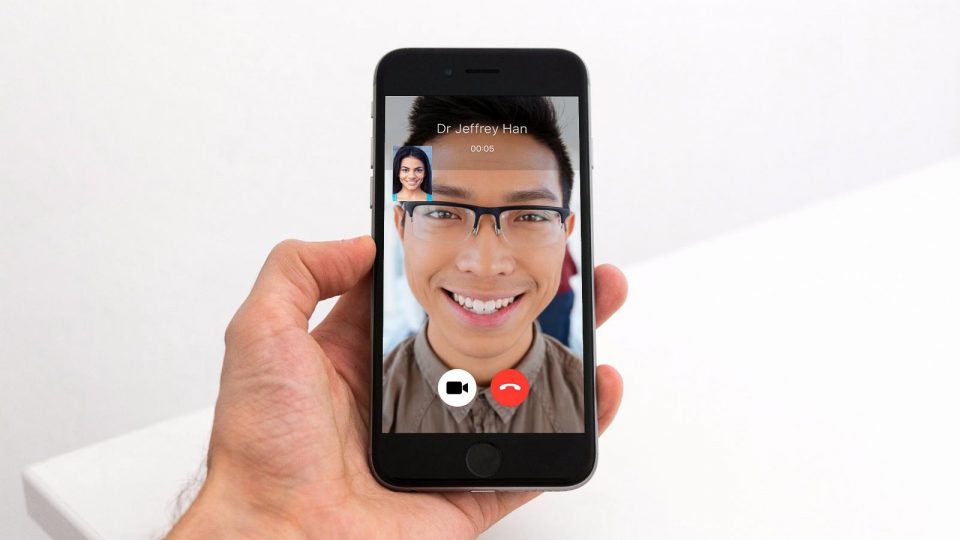In 2012, MyDoc was started to make healthcare simple. Traditionally, patients spend a huge amount of time commuting to clinics or hospitals, waiting for their turn to see doctors, claiming for insurance and even more time following up after a health screening.
Today, MyDoc is redefining the healthcare industry in Asia by integrating all aspects of healthcare into one easy-to-use solution. The platform comprises a comprehensive healthcare services network that connects organisations, governments and patients to doctors, pharmacies, insurers and laboratories. MyDoc is serving 30,000 active users in a month.
According to a 2017 Asia Pacific Benefit Trends Survey released by Willis Towers Watson, more than half of Singaporean employees are unsatisfied with their workplace benefits and agree that current benefit packages in place do not provide sufficient choice, flexibility and diversity. To address this issue, MyDoc@Work was launched.
In this interview, Dr Snehal Patel, CEO and Co-Founder of MyDoc Pte Ltd, elaborates about the features of MyDoc@Work, how the system works and what it can do for the fitness community.

RS: Tell us about how MyDoc@Work works.
Dr Snehal: MyDoc@Work is a mobile and web service that connects employees to corporate health services including doctor consultations, e-MCs, prescriptions and dental services. Patients who feel unwell or want to be proactive about their health can use MyDoc to consult a doctor, book training sessions, dental cleanings and other services from a single, easy-to-use service.
It saves patients’ time, effort, and makes the whole process of getting healthier easier. At times when you’re sick, you’re unlikely to be in the best mood, so we focus on improving the experience and making it easier to get healthier. We think the same way when it comes to the rest of the services of MyDoc@Work. By making it easier and more intuitive to meet employees’ fitness goals, get a dental cleaning or eye checkup, employees are more likely to try to be healthier.
RS: Which services of MyDoc that are most used by customers?
Dr Snehal: Doctor consultations are still the most used service because patients are most engaged and incentivized to use the service when they are sick and unwell. With MyDoc@Work we’re putting more focus on encouraging proactive health for employees to act to make sure they live healthier lives. We make it easier to be proactive about your health with less confusion.
RS: Tell us about how the current healthcare benefits packages can be improved with MyDoc.
Dr Snehal: Healthcare benefits or corporate health packages right now tend to only be effective for short periods of time. This is because current benefits tend to be offline events that are organized as group activities or a short-term program which yields short-term benefits. While these are useful and a great way to engage employees from time to time, they don’t provide the benefits a long-term program can in terms of less sick days, higher productivity levels and better employee morale.
What we’re currently looking at introducing is enhanced corporate health features like mental wellbeing and nutrition-services as a way to provide a complete health experience for employees to deal with issues such as stress, depression, and even bad nutrition and diet.
RS: What are the key features of MyDoc that will tremendously change the landscape of workplace healthcare in Singapore?
Dr Snehal: MyDoc was born out of necessity to make healthcare more efficient for doctors, patients and the services that exist within it. As with any industry, there were multiple pain points which we needed to address, so we focused on the key issues that we could solve. As a physician-led startup, we understand how confusion and lack of connectivity have the potential to hurt the patient.
A telling example of inefficiency or a gap in the industry was the low rate of follow-up after health screenings. Based on our own data as well as our partners’, less than 10% of patients with abnormalities in their results followed up with a doctor. This means if you have a higher than normal blood pressure or are at risk for diabetes, most patients don’t even speak to a doctor.
We saw this as an opportunity to make a significant impact on the overall health industry by encouraging follow-ups. We do this by making it easier for a patient to immediately message or book a video consult with a doctor right after they see their health screening results. This eliminates any of the confusion and makes it simpler to get professional help and advice. This is why our follow-up rates range from 65% on average all the way to 85% in some cases. With a healthier workforce, we can expect to see a happier and more productive one in no time.
Providers also face complexity in managing payment, tracking health data and sharing data across different agencies. Using MyDoc@Work, we’re able to automatically share relevant data and integrate with existing systems to streamline the entire process, automate and lower overheads of our partners. In a nutshell, MyDoc is focused on driving costs down for our partners, by driving convenience up for our end-users. Corporates who wish to provide benefits for their employees can therefore now do so in a cheaper, more convenient manner.

RS: Two of the most interesting features of MyDoc are virtual consultations and issuance of e-MCs (Electronic Medical Certificates). Tell us how doctors are able to certify if patients are really ill through virtual consultations and whether the e-MCs are accepted and honoured by Singapore employers.
Dr Snehal: All our doctors are experienced in identifying and diagnosing illnesses over virtual consultations. We also ensure all of the doctors on our platform are trained to get the most information from patients virtually to allow them to make the best and most accurate diagnosis possible.
Corporates can choose how they want to accept MCs, there is no specific rule. However, since we work directly with corporates, they will definitely accept MyDoc’s e-MCs from their employees.
RS: For eye and dental services, are these services done online? How do they work?
Dr Snehal: MyDoc conducts an online triage to help understand the patient’s issues and determine key details about the condition. We also coordinate the date and timing of a booking, so the patient can easily book a session with a dentist or optometrist all through a single platform. This service offered is also cashless, unless patients have specific requests, which they can discuss directly with the specialist.
RS: How do fitness services work?
Dr Snehal: We partner with fitness services like uFit to provide our users with access to both online and offline services. Online services include a diet & nutrition programme which helps users reach their fitness goals easily. We also allow our users to book fitness services such as a mobility screening, fitness boot camps for the whole company, and even fitness seminars.
RS: Fitness enthusiasts sometimes find themselves injured after an intense workout, how can they make use of MyDoc?
Dr Snehal: Users can contact a doctor for advice or consultation on fitness injuries, such as muscle strains or sprains. Through a consultation, doctors can then prescribe the necessary medication. We’re also looking at providing services like physiotherapy consultations and bookings through our service soon.
RS: How does digital health screening work?
Dr Snehal: Digital health screenings digitize the reporting for the health screening. As the MyDoc platform is integrated with all the major private laboratories in Singapore, after a blood draw, the laboratories automatically send the health screening results directly to the patient’s MyDoc account. Patients can use MyDoc to read their reports directly after it is analysed by the laboratory. If the patient is confused about their results, they can then tap on the virtual consultation service to consult a panel of Singapore-based doctors.
RS: Are there any free services offered by MyDoc to members of the public who isn’t registered under MyDoc@Work programme?
Dr Snehal: We have a free community digital health programme with Guardian. For more information please visit here.
To learn more about MyDoc, visit MyDoc’s website for full list of features.
When it comes to technology, are you an early adopter or a laggard? Do you prefer seeing doctor virtually or face-to-face?





